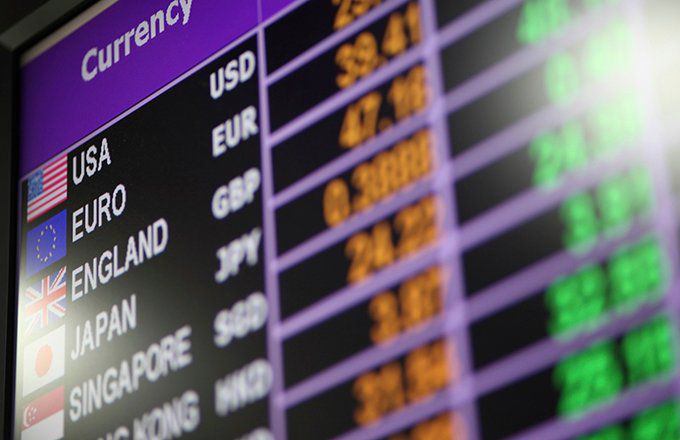
What Are Forex Market Hours?
Foreign exchange (forex) market hours are the specified periods of time when traders and investors are able to conduct transactions in the foreign exchange market. The forex market is open 5 days a week and closed during the weekend.
These international currency markets are vital to facilitating business across the globe and are made up of banks, commercial companies, central banks, investment management firms, and hedge funds, as well as retail forex brokers and investors.
Key Takeaways
- Forex market hours are the hours when markets for forex trading are open.
- The forex market is available for trading 24 hours a day except on weekends.
- The forex market is decentralized and driven by local sessions, and four in particular—Sydney, Tokyo, London, and New York.
- Trading volume varies from one session to another, although the highest trading volume tends to occur when the London and New York sessions overlap.
- The benchmark spot and forward exchange rates, used for daily valuation and pricing by many money managers and pension funds, is set at 4 p.m. London time.
Understanding Forex Market Hours
Forex market hours are the hours during which forex market participants all around the world can buy, sell, exchange, and speculate on global currencies. The forex market is open 24 hours a day during weekdays but closes on weekends.
Because this market operates in multiple time zones, it can be accessed at any time except for the weekend break. With time zone changes, this break gets squeezed.
The forex market opens on Sunday at 5 p.m. local time in New York City. It closes on Fridays at 5 p.m. and resumes trading again 48 hours later to begin a new week. When the market is open, traders all around the world can execute trades in the forex market. Trading conditions may vary depending on what session you’re operating in.
The international currency market isn’t dominated by a single market exchange. It involves a global network of exchanges and brokers around the world.
The international currency market isn’t dominated by a single market exchange. It involves a global network of exchanges and brokers around the world.
Specific Sessions and High-Volume Hours
Forex market trading hours are based on when trading is open in each participating country. While time periods overlap, it is generally accepted that the following periods are the most active for each region:
- New York: 8 a.m. to 5 p.m. (EST)
- Tokyo: 7 p.m. to 4 a.m. (EST)
- Sydney: 3 p.m. to 12 a.m. (EST)
- London: 3 a.m. to 11 a.m. (EST)
The chart below shows the actual hours that markets in each region are open in the global standard UTC time, and where those sessions overlap.
Image by Sabrina Jiang © Investopedia 2021
The two busiest time zones are located in London and New York. The period when these two trading sessions overlap (London afternoon and New York morning) is the busiest period. It accounts for the majority of volume traded in the day, with trillions of dollars in value changing hands.
It is during this period that the WM/Reuters benchmark spot and forward foreign exchange rates are determined. The rates, which are set at 4 p.m. London local time, are used for daily valuation and pricing by many money managers and pension funds.
Forex trading starts in New Zealand but is called the Sydney session.
Forex trading starts in New Zealand but is called the Sydney session.
Special Considerations
Most Popular Currencies
While the forex market is a 24-hour market, some currencies in several emerging markets are not traded 24 hours a day.
The seven most traded currencies in the world are the U.S. dollar, euro, Japanese yen, British pound, Australian dollar, Canadian dollar, and Swiss franc. All trade continuously while the forex market is open. Speculators from all over the world typically trade forex in currency pairs involving these seven currencies and favor trading times with heavier volume.
High Volume and Pricing Efficiency
When trading volumes are heaviest, forex brokers will provide tighter spreads (bid and ask prices closer to each other), which improves pricing efficiency and reduces transaction costs for traders.
Likewise, institutional traders also favor times with higher trading volume, though they may accept wider spreads for the opportunity to trade as early as possible in reaction to new information they have.
Despite the highly decentralized nature of the forex market, it remains an efficient transfer mechanism for all participants and a far-reaching access mechanism for those who wish to speculate from anywhere on the globe.
What Are the 4 Forex Trading Sessions and Times?
In Coordinated Universal Time (UTC), they are 7 a.m. to 4 p.m. (the London market), 1 p.m. to 10 p.m. (the New York market), 9 p.m. to 6 a.m. (the Sydney market), and 12 a.m. to 9 a.m. (the Tokyo market.
What Time Does the Forex Market Close in the U.S.?
In local time (EST), it closes at 10 p.m. every day except when it’s closed for the weekends. When taking all regional sessions together and using UTC time, forex trading begins in New York at 5 p.m. Sunday and closes at 5 p.m. Friday.
What Is UTC Time?
UTC is short for Coordinated Universal Time. It’s the 24-hour time standard for civil time throughout the world. It officially replaced Greenwich Mean Time in 1967.
The Bottom Line
The forex market is open for certain hours during sessions in participating countries. When taken together, these market hours allow for 24-hour trading, five days a week. The forex market is closed during the weekend.



